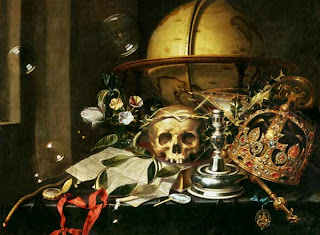
Soublette Gaston, in his extraordinary book about the sayings in Chile, said that popular stories are always built from a generic structure invariant, namely that of a hero must make good the deficiencies and faults of his people through the restoration of a broken social contract before. As a result of this process, says the philosopher, "the false heroes are unmasked by disregarding the advice of seemingly insignificant things" (48). It is therefore a lesson of wisdom and humility. And who is the head of a people, seem to suggest this strict moral structure must necessarily have both features if you want to be a just ruler.
This little theoretical input can illuminate a very special way the story "Everything passes, nothing lasts," included in the collection of stories about the Jewish tradition that I want to comment today. The history of this narrative is, in simple terms, the following: King Solomon decided to mock one of his royal advisors and entrusted with the task of finding a ring that has "the power to make man happy and sad sad man again happy "(75) The Minister, of course, does not know what to do. Never before heard of a ring like that, and the monarch has been given only thirty days to comply with the request. The search is, until the last moment, a complete failure. Nobody knows a ring with such characteristics. However, in his return to the realm the server is so much desired, and quickly leads to Solomon. Upon receiving the ring, a profound sadness sweeps the face of the monarch. The inscription on the edge of the great jewel has been changing mood: everything goes, nothing lasts . Retrieving an old
reason that throughout history has been updated in different ways, I think, for example, dances medieval death, or vanitas who heads this review, "this Hebrew story gives us a clear lesson about life and death. Solomon only becomes a wise king when he comes to understand: "My riches will pass into other hands, my garden is dry, beautiful women in my realm will be old and my friends close their eyes forever. Someday, my dear Barnabas, there will be another king seated on this throne I now occupy ... "(79) Nothing that man cherishes last forever, death, the great leveler, is responsible for that. All are equal before the terrible sight. But some, as taught by this story, it hurts and others quiet.
This is, we could clarify the ethical dimension of the narrative. But Soublette can also enter its political implications. The false hero who fell here is the vanity of Solomon. The social compact that supported his kingdom was not built on a solid foundation - "We live on our roots, not on our branches," Chilean saying goes, but on the false grandeur of the material. The foundation of every community should be invisible, like the branches of the tree, and the primary force, inviolable, from which everything emerges and to which we are all going is certainly death. It should be understood as an Uruguayan singer says that death is also a fact of life.
Sources: Soublette, Gaston. Wisdom Chilean oral tradition (sayings) . Santiago: Ediciones UC, 2009.
0 comments:
Post a Comment